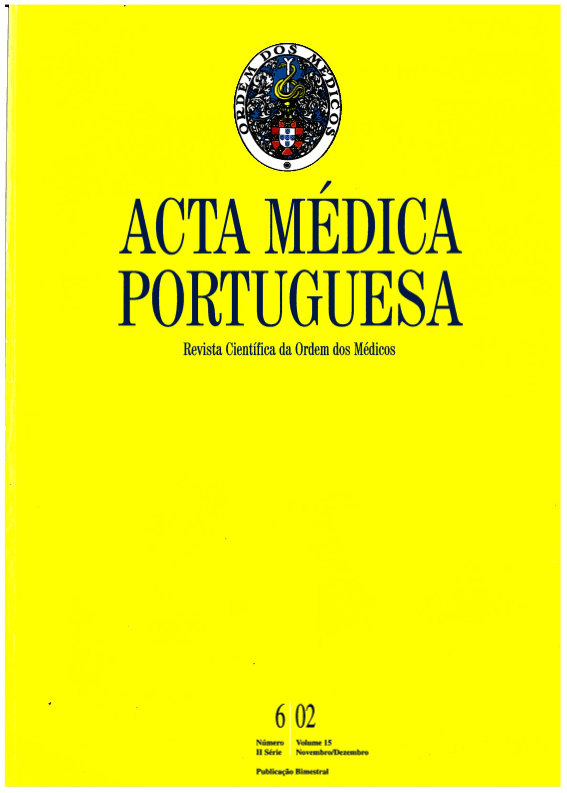Stress e Doença de Graves. Relações entre o número e o impacto dos acontecimentos geradores de Stress e o início da Doença de Graves.
DOI:
https://doi.org/10.20344/amp.1983Resumo
In recent years, there have been many reports about a possible association between Stressful Life Events (SLE) and the onset of Graves' Disease (GD). Nevertheless, most papers have been criticised and no such association has yet been proven.To assess the possible associations between SLE and the onset of GD.Retrospective study of 62 subjects, divided into 2 groups of 31 each, GD (Gp1) and controls (Gp2). The patients in Gp1 had thyroid disease diagnosed within the last 12 months, with clinical and biochemical confirmation. In Gp2, psychopathological and endocrine disturbances had been ruled out. Each 2 group consisted of 9 males (29%) and 22 females (71%). The mean age was 38.48 + 10.9 in Gp1 and 41.1 + 11.8 in Gp2. SLE evaluation (number and impact) was reported for the 12 months preceding the onset of symptoms of thyroid disease. To assess SLE, we used the Life Experiences Survey-LES from Saranson, Johnson and Siegel (1978; 1985). Statistical analysis was done using Mann-Whitney and Kruskal-Wallis tests.Patients with GD had a significantly greater number of SLEs compared to Controls (p < .001). The number and impact of negative SLEs was significantly higher in Gp1 compared to Gp2 (p < .001). There were no significant differences between the groups in terms of the number and impact of both positive and neutral SLEs.The findings of this study support that SLEs may contribute to the precipitation of GD. We observed that patients with GD had significantly more negative events and experienced a greater negative impact from them prior to the onset of GD. The association of SLEs with GD is probably related to the association of stress with changes in the immune system, which can play an important role in the aetiology of thyrotoxicosis.Downloads
Downloads
Como Citar
Edição
Secção
Licença
Todos os artigos publicados na AMP são de acesso aberto e cumprem os requisitos das agências de financiamento ou instituições académicas. Relativamente à utilização por terceiros a AMP rege-se pelos termos da licença Creative Commons ‘Atribuição – Uso Não-Comercial – (CC-BY-NC)’.
É da responsabilidade do autor obter permissão para reproduzir figuras, tabelas, etc., de outras publicações. Após a aceitação de um artigo, os autores serão convidados a preencher uma “Declaração de Responsabilidade Autoral e Partilha de Direitos de Autor “(http://www.actamedicaportuguesa.com/info/AMP-NormasPublicacao.pdf) e a “Declaração de Potenciais Conflitos de Interesse” (http://www.icmje.org/conflicts-of-interest) do ICMJE. Será enviado um e-mail ao autor correspondente, confirmando a receção do manuscrito.
Após a publicação, os autores ficam autorizados a disponibilizar os seus artigos em repositórios das suas instituições de origem, desde que mencionem sempre onde foram publicados e de acordo com a licença Creative Commons









